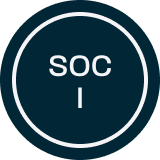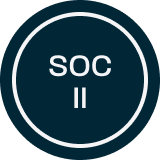Introduction
The Hon’ble Supreme Court delivered its judgement in the case of Engineering Analysis Centre of Excellence (P.) Ltd vs. Commissioner of Income tax1 with respect to the taxability of the consideration received for computer software by a non-resident after hearing the matter through the digital platform and disposing off over 100 civil appeals through one order. Though the cases before the Supreme Court were over 20 years prior, the observations and the approach adopted by the Hon’ble Court have laid down the law to guide even the current business transactions and forms.
Background
This judgement addresses four categories:
- Sale of computer software by a non-resident supplier or manufacturer directly to a resident end-user;
- Sale of computer software by a non-resident supplier or manufacturer to a resident distributor or reseller companies for further resale to Indian end-users;
- Sale of computer software by a non-resident distributor to a resident distributor or reseller companies for further resale to Indian end-users;
- Sale of computer software bundled with a hardware by a non-resident supplier to a resident distributor or to Indian end-users;
The contention of the Indian Tax Authorities was that since the sale of software included a license to use the same, i.e., a copyright, the payment made by the India resident to foreign suppliers constituted ‘royalty’ and therefore withholding tax (Tax at Source (TAS)) was liable to be deducted under the Indian tax laws2.
Observations of the Supreme Court
A. Meaning of the word ‘copyrights’:
With respect to analysing, the definition of the term ‘copyrights’, the Supreme Court first reaffirmed the principle laid down in Union of India vs Azadi Bachao Andolan3, that where any term is defined in a Double Taxation Avoidance Agreement (‘DTAA’), the definition maintained in the DTAA is to be looked at and only if there is no such definition then the definitions in the Indian tax laws can be applied. Further, it observed that by virtue of Article 3(2) of the DTAA, any term not defined in the DTAA shall, unless the context otherwise requires, have the meaning which it has under the law of that State concerning the taxes to which the DTAA applies.
The Apex court reiterated the principle laid earlier that when a DTAA applies, the provisions of the Indian tax laws can apply only to the extent that they are more beneficial to the taxpayer and not otherwise.
In the aforesaid background, since the word ‘copyright’ has neither been defined in the DTAA nor the Indian tax laws, the Hon’ble Court stated ‘No copyright exists in India outside the provisions of the Copyright Act or any other special law for the time being in force, vide section 16 of the Copyright Act’, and analysed the provisions of the Copyright Act, 1957 (‘the Copyright Act’) to understand the meaning of copyrights payment with respect to the phrase ‘use or right to use the copyright’ as stated in the DTAA.
‘The court observed that when an author in relation to a ‘literary work’, which includes a ‘computer programme’, creates such work, such author has the exclusive right, subject to the provisions of the Copyright Act, to do or authorise the doing of several acts in respect of such work or any substantial part thereof.’
The court observed that a transfer of copyright would occur only when the owner of the copyright parts with the right to do any of the acts mentioned in section 14 of the Copyrights Act. In the case of a computer program, section 14(b) speaks explicitly of two sets of acts:
i. The seven acts enumerated in sub-clause (a); and
ii. The eighth act of selling or giving of commercial rental or offering for sale or commercial rental any copy of the computer program (regardless of whether such copy has been sold or given on hire on earlier occasions)
The seven acts as enumerated in section 14(a) in respect of literary works concern to various acts, which enable the owner/ author of the copyright to delineate the copyright from itself.:
i. the right to reproduce the work in any material form including the storing of it in any medium by electronic means;
ii. the right to issue copies of the work to the public, not being copies already in circulation;
iii. the right to perform the work in public or communicate it to the public;
iv. the right to make any cinematograph film or sound recording in respect of the work;
v. the right to make any translation of the work;
vi. the right to make any adaptation of the work; or
vii. the right to do any of the specified acts in relation to a translation or an adaptation.
B. Doctrine of First Sale/Principle of Exhaustion
The Supreme Court explained the Doctrine of First sale/ Principle of Exhaustion by relying on the locus classicus on this subject, Copinger and Skone James on Copyright (14th Edition) (1999) and various other domestic judgements.
It made an observation that the object of section 14(b)(ii) of the Copyright Act, in the context of a computer program, is to interdict/ prohibit reproduction of the said computer programme and consequent transfer of the reproduced computer programme to subsequent acquirers/end-users. By way of contrast, once a book is sold, on further resale of the same book, the purchaser loses the material book altogether, as such purchaser has, for consideration, parted with the book once and for all. This may not be so in the case of a computer programme, which is why the European Court of Justice in UsedSoft v. Oracle4 held that unless a further resale of a computer software stored on a floppy disc/CD is accompanied by the destruction of the said software on the computer of the reseller/first acquirer, the copyright owner’s rights would be easily infringed by mere reproduction thereof. This is also recognised in section 65A of the Copyright Act which punishes the circumvention of technological protection measures, such as encryption codes, product keys etc. designed to ensure that the first acquirer’s copy is made unusable.
Thus, once it is understood that the object of section 14(b)(ii) of the Copyright Act is not to interdict the sale of computer software that is “licensed” to be sold by a distributor, but that it is to prevent copies of computer software once sold being reproduced and then transferred by way of sale or otherwise, it becomes clear that any sale by the author of a computer software to a distributor for onward sale to an end-user, cannot possibly be hit by the said provision. The distributor cannot use the computer software at all and has to pass on the said software, as shrink-wrapped by the owner, to the end-user for a consideration, the distributor’s profit margin being that of an intermediary who merely resells the same product to the end-user. It relied on its decision in the case of Tata Consultancy Services5, rendered in the context of the Sales Tax Statute, wherein the sale of a physical object which contained an embedded computer programme was held to be ‘goods’.
Further the Supreme Court observed that the right to reproduce a computer programme and exploit the reproduction by way of sale, transfer, license is at the heart of the said exclusive right. A copyright owner has an inherent right to distribute his own work. It is the distributor’s right qua the copyright owner. If the first sale is made and by virtue of that first sale, the right to make copies thereof has been exhausted then only there has been a transfer of copyright.
Further, the Hon’ble Court also highlighted that the right to reproduce and the right to use computer software are distinct and separate rights, as has been recognized in SBI v. Collector of Customs6, the former amounting to parting with copyright and the latter, in the context of non-exclusive EULAs, not being so.
C. Definition of Royalty in the DTAAS vis-à-vis the Indian Tax Laws
Taking India – Singapore DTAA as the base, the SC observed that the definition of royalty in the Indian tax laws, when it speaks of “all of any rights…in respect of copyright” is wider than the DTAA provision, which speaks of the “use of, or the right to use” any copyright. The transfer of “all or any rights (including the granting of a licence) in respect of any copyright”, in the context of computer software, is referable to sections 14(a), 14(b) and 30 of the Copyright Act and the expression “in respect of” is equivalent to “in” or “attributable to”.
Whilst on the definition of royalty, the Hon’ble Supreme Court, held that the amendment made to the Indian tax Laws, vide the Finance Act, 2012, which was made retrospective in nature, i.e . applicable to the domestic tax laws from 1976, was prospective only, by relying on two latin maxims - lex non cogit ad impossibilia (i.e., the law does not demand the impossible), and impotentia excusat legem (i.e., when there is a disability that makes it impossible to obey the law, the alleged disobedience of the law is excused).
D. Liability to Deduct Taxes at Source
The Hon’ble Supreme Court observed that a deduction of tax at source can only be made if the non-resident is liable to pay taxes under the charging provisions contained in section 9 read with section 4 of the Indian tax laws, read with the provisions of the DTAA. For this proposition it relied on its own decision in the case of GE Technology7 and distinguished the decision of Pilcom8, on the ground that the latter dealt with payments made to non-resident sportsperson or sports association, whereas the liability to tax arose, in other cases, only when there was a liability to pay taxes in India.
E. Interpretation of Treaties
The Hon’ble Supreme Court reiterated that the treaties entered into by India with the other Contracting States should be interpreted liberally with a view to implement the true intention of the parties. Further it also made an observation that insofar as the model convention followed by India to enter into DTAA is based on the OECD Model Convention, the OECD Commentaries will continue to have persuasive value as to the interpretation of the terms contained therein. It observed that the OECD Commentaries are significant, as the Contracting States to which the persons deducting tax/assessees belong, can conclude business transactions on the basis that they are to be taxed either on income by way of royalties for parting with copyright, or income derived from licence agreements which is then taxed as business profits depending on the existence of a PE in the Contracting State. The Supreme Court relied on its earlier decision, in the case of Ram Jethmalani v. Union of India9, and noted that though India is not a party to the Vienna Convention on the Law of Treaties, the principles of international law and the principle of interpretation contained in Article 31 thereof provide broad guidelines to interpret treaties in the Indian context also.
The Tax Authorities sought to rely on the positions and observations India had taken with respect to the OECD Commentaries. However, the Supreme Court turned down that proposition, and upheld the observation of the Delhi High Court10 that mere positions taken with respect to the OECD Commentaries do not alter the DTAAs provisions, unless the relevant treaty is actually amended by way of bilateral renegotiation.
Impact of the Decision
A. Where a tax treaty applies, software licensing fees paid by Indian residents to non-residents, whether as a distributor on account of resale to Indian end-users or as end-user, may not be classified as a “royalty” for the application of the treaty and do not trigger the deduction of withholding tax (tax at source) in India.
B. The Hon’ble Supreme Court through this decision, has done a beautiful thesis on the Copyright Act, dovetailing it to Indian tax laws and the DTAA, which has paved path to give clarity in respect of ever-changing technology transactions of the businesses. For instance, the Mumbai Tax tribunal in the case of Gartner Ireland Limited11, which was engaged in the business of distributing research products, sold its subscription to Indian subscribers against access subscription fee. The Tax Department had held such subscription fee to be ‘royalty’ under the provisions of the India – Ireland DTAA and the provisions of the Indian tax laws, which the Mumbai Tax Tribunal agreed with. This decision was arrived after following the decisions of Hon’ble Karnataka High Court in Wipro12 and Samsung Electronics13. Now considering the fact that the decision of the Karnataka High Court has been reversed by this Supreme Court decision, not only by addressing the specific parameters in that case, but laying down the general principles. One could conclude that the Supreme Court, applying the provisions of the Copyright Act have implied that the subscription fees being paid do not constitute ‘royalty’.
C. Another, interesting off shoot of this judgement would be to see as to how the tax administration gives effect to the Hon’ble Supreme Court’s judgement in other taxpayers’ cases, wherein the assessment is completed and the time limit for rectification or revision of the orders has lapsed. The constitution of India holds it illegal to collect taxes unless legally payable and collectible. The Court has held that businesses are not liable to pay taxes, but the tax Administration has collected the same in the past. It is to be awaited whether a mechanism would be put in place where the taxpayers have voluntarily paid taxes or whether the High Courts could allow a writ petition on these grounds.
D. The Supreme Court has reaffirmed that tax at source ought to be deducted only if the payment that is being made is a sum chargeable to tax, under the Indian Tax laws and the DTAA, whichever being favorable to the taxpayer. This observation, applies not only to royalty, but also to any other payments being made to the non-resident u/s 195 of the Indian tax laws.
E. One of the aspects to be looked in respect the liability to pay taxes on royalty is to conclude, whether the license agreement is a license agreement u/s 30 of the Copyright Act and whether the rights embedded in section 14 are being sold? The difference between license to use and licenses is now to be ascertained.
F. The Supreme Court has placed a significantly high reliance on the OECD Commentaries, though not holding them to have a binding effect on the parties. This observation may have far reaching impact in litigations relating to fields other than ‘Royalty’.
G. India had introduced the equalisation levy to be charged on specified digital services in 2016 on the basis of the E-commerce Report 2016. The statutory provisions relating to the levy and collection of the equalisation levy do not form part of the Income Tax Act, 1961 and have been introduced as a separate levy under the Finance Act, 2016. Thereafter, there has been a question since its introduction as to whether, equalisation levy is a separate tax and not in the nature of an income tax and that whether it overrides the treaty provision and leading to juridical double taxation.
The tax authorities had sought to rely on the E-Commerce Report 2016, to justify the tax levy on the copyrights. Rejecting the line of argument advocated by the tax authorities, the Hon’ble Supreme Court, made the following observation:
‘When it comes to DTAA provisions, even if the position put forth in the aforementioned reports were to be accepted, a DTAA would have to be bilaterally amended before any such recommendation can become law in force for the purposes of the Income Tax Act.’
A question that now arises is, has the Hon’ble Supreme Court given its stand that the equalisation levy cannot override the DTAAs entered into by India? This can only be verified with the evolvement of jurisprudence in the country.
Footnotes
1. (2021) 125 Taxmann.com 42(SC) available at
https://main.sci.gov.in/supremecourt/2011/38137/38137_2011_33_1501_26629_Judgement_02-Mar-2021.pdf
2. The Income Tax Act, 1961
3. (2004) 10 SCC 1
4. Usedsoft GmbH vs. Oracle International Corp. (Case C-128/11) [‘Usedsoft vs. Oracle]
5. Tata Consultancy Services v. State of A.P., 2005 (1) SCC 308
6. 2000(1) SCC 727 (See Paragraph 21)
7. GE India Technology Centre(P) Ltd. V Commissioner of Income Tax (2010) (10 SCC 29)
8. Pilcom v. Commissioner of Income Tax, West Bengal-VII, 2020 SCC Online SC 426
9. Ram Jethmalani vs Union of India (2011) 8 SCC 1
10. Division Bench of Delhi High Court in Director of Income Tax vs. New Skies Satellite BV, (2016) 382 ITR 114
11. Gartner Ireland Limited v. Assistant Director of Income-tax (International Taxation), Range – 3(1) (2013)60 SOT 43 (Mumbai Tribunal)
12. CIT(IT) vs Wipro Limited (2011)(355 ITR 284)
13. CIT v. Samsung Electronics Co. Ltd. (2012) 345 ITR 494






